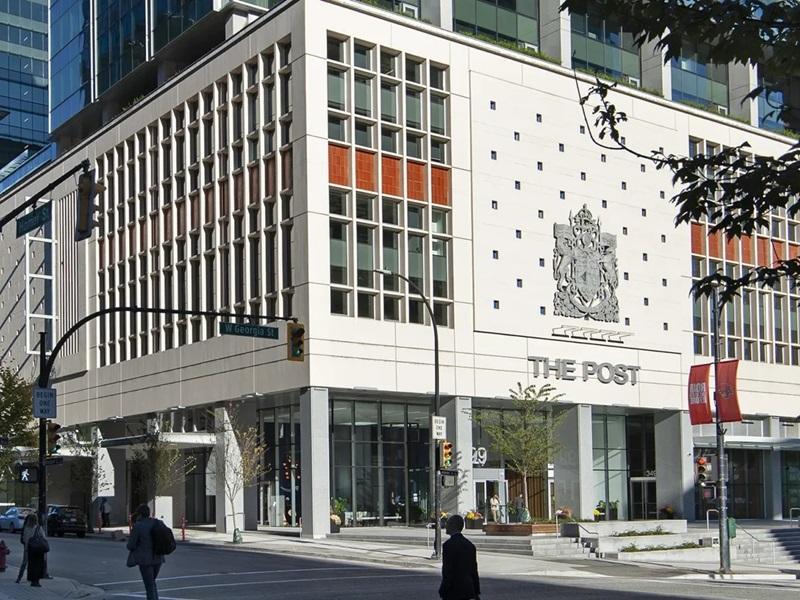
Canada's industrial sector has taken off over the past three years with record high rents and low vacancy rates, but industrial, commercial and investment land sales have slowed due to high interest rates and inflation.
That was one of the conclusions to come out of a panel discussion moderated by CBRE vice-chairman Mike Czestochowski at the May 30 Land & Development Conference in Toronto, which looked at land availability, prices and uses.
Altus Group senior director John Galluzzo told the conference serviced industrial land values in Calgary, Edmonton and Halifax costs from $700,000 to $1 million per acre. That’s at the low end of the scale. At the high end is Vancouver, where industrial land is selling for between $4 million and $10 million per acre.
In between those extremes are the Greater Toronto Area (GTA), where industrial land is selling for between $2 million and $4 million an acre, and Montreal, where the value ranges from $1 million to $2 million per acre.
Condominium launches and sales have slowed
“Q1 ’22 was the last of the boom period in terms of selling out condos within a couple of weekends at record pricing,” Galluzzo said. “And then slowly, as each month moved on through ’22, sales started slowing down.”
Galluzzo said there are several condominium sites in Toronto that are approved and ready for development, but developers haven’t yet launched sales due to high interest rates creating unfavourable market conditions. Many of them are likely going to wait until the fall, when it’s hoped more people will be looking to buy, before deciding whether to start marketing their projects.
Galluzzo doesn’t forecast a surge in pre-construction condo sales until interest rates start to fall to about 4.5 per cent.
“We've seen a lot of movement outside of the traditional GTA to the outer ring area of the Greater Golden Horseshoe, and in what traditionally was a low- to medium-density residential market we're starting to see much more infilling and much more low- to mid-rise apartment-style developments,” Galluzzo said.
Toronto is oversupplied with office space
Avison Young principal and president of professional services for the Americas Sheila Botting said seven million square feet of office space will be coming online in the GTA this year and next. With tenants often favouring these new assets over older buildings, a high availability rate could grow even higher.
While this will present challenges, there could also be opportunities.
“If you think about the downtowns of every Canadian or North American city, they're monoculture,” Botting said. “They're just a stack of office buildings.
“So when everybody goes home at night, no wonder it's not as busy as it should be. There's an opportunity to inject more residential to create more live, work, play and learn kinds of environments and reimagine what our downtowns really look like.”
Galluzzo said there are good high-rise office sites in Toronto that would be better purposed as affordable housing towers.
Approvals processes present challenges
Hazelview Investments managing partner and head of real estate development Michael Williams thinks the biggest challenge facing the real estate industry in the GTA is the uncertainty around approvals and the length of time they take, which can cause reluctance among developers and investors when it comes to transactions or launching new projects.
Galluzzo said urban projects in Toronto generally take a minimum of two to three years to receive entitlements, and it often takes even longer to get site plan approvals. He thinks there should be more blanket zoning across the city to make it easier and faster for more projects to get underway at a time when there’s a severe shortage of housing.
Czestochowski has been in the real estate business for 38 years and said he used to call local municipal planners when trying to figure out what to do with a site. More calls are now going to city councillors and the mayor’s office because politicians are wielding more power in these decisions and aren’t always relying on the professionals whose jobs it is to make such recommendations.
“At what point do we take our development approval process and put it in the hands of people that are looking at the common good rather than just what's going on in their immediate area?,” Czestochowski asked.
Williams said he would like to see these decisions be taken away from politicians and be given back to people who’ve spent their lives planning and designing cities.
Williams would like to see municipal officials talking more about increased density and expedited processes to create more affordable housing.
Looking ahead, however, he said, “I think we're going to continue to see highly structured deals with long closing periods.”










